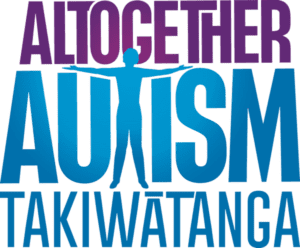
It’s important that everyone has access to their doctor when they need it. Regular check-ups and keeping up to date with medication may mean health problems or complications are avoided.
If there are barriers to getting to the doctor, like not having transport, you can check out our page on accessing public transport and our page about finding help to cover the costs of transport. If there are other financial barriers to accessing healthcare, here are some things that may help.
Visits to your doctor and prescriptions
Visits to a GP (your family doctor) will usually incur a fee for people aged 13 and over. Costs can vary at different medical centres, so it’s important to shop around. You can also call Healthline on 0800 611 116 at any time to speak with a registered nurse for free if you need health advice.
A Community Services Card can reduce the cost of some healthcare services, such as after-hours doctor visits, emergency dental care provided by hospitals and approved dental contractors and home help.
Doctors can apply for a High Use Health Card (HUHC) for patients who have made 12 or more visits during the year. The HUHC gives doctors extra funding so they can spend more time developing a plan to better manage their patients health.
There are some providers of free healthcare services for young people (usually aged 10 – 25) around New Zealand. Clinic hours may be limited and funding for these types of services can be uncertain. Here are some organisations that currently provide free healthcare services to young people:
- Whangarei Youth Space
- Youth Health Hub provides services in Waitakere, North Shore and Rodney
- Rotovegas Youth Health provide free services in Rotorua
- Youth Services Trust provide free services in Wanganui
- Masterton Medical Youth Clinic
- Vibe Hutt Valley Youth Health Services
- Evolve Wellington Youth Service
- Te Tahi Youth Health provide free services in Christchurch
- Number10 provide services in Invercargill
You can search the Family Services Directory for other providers near you.
If you have paid for 20 prescription medication items within the year, you’ll be eligible for a Prescription Subsidy Card. This means you won’t have to pay any more prescription charges for the rest of the year.
Dental care
In most cases dental care for New Zealand adults is not subsidised by the government, however in certain circumstances it is possible to get help with dental care from the Ministry of Health or Work and Income.
Equipment for disabled people
Whaikaha – Ministry of Disabled People provides a range of services for people who are Deaf or have hearing loss. This may include access to equipment, funding for cochlear implants, funding for hearing aids, or a subsidy for hearing aids.
If you are concerned about your hearing, you can also contact Life Unlimited (now known as Your Way | Kia Roha) Hearing Therapy. They provide a free, national service for all New Zealanders over 16 and offer hearing evaluations and information about hearing loss.
Whaikaha – Ministry of Disabled People has information about equipment for people who are blind or have reduced vision. You can also find support at the Blind Foundation.
You can find out more about equipment and modifications for disabled people at the Whaikaha – Ministry of Disabled People website.
Family planning and sexual health
Family Planning provides a free service to New Zealanders under 22, and discounted consultation fees for Community Service Card holders. Many additional services are free, such as some forms of long-term contraception, testing for pregnancy and testing for sexually transmitted infections.
Support with addiction
You should talk with you doctor if you are concerned about your use of drugs and alcohol and think you need help. Here are some other places you can find support:
Quitline offer support to help stop smoking. Phone 0800 778 778.
The Alcohol Drug Helpline is available if you are concerned about your own or someone else’s drinking or other drug use. Call 0800 787 797.
You can find information and advice at the Drug Help website.
Client rights
Everyone using health or disability services has rights. You can expect to be treated with respect and dignity; without discrimination; and to receive quality care and information that enables you to make informed decisions.
If you are concerned about a health and disability service provider, you also have the right to make a complaint. You can learn more about your rights at the Health and Disability Commissioner. You can also find other resources on our advocacy and legal support page.





